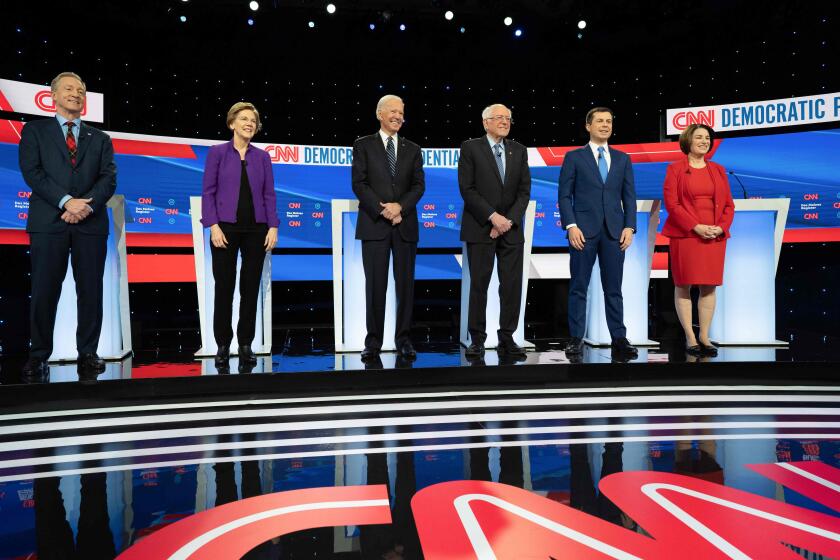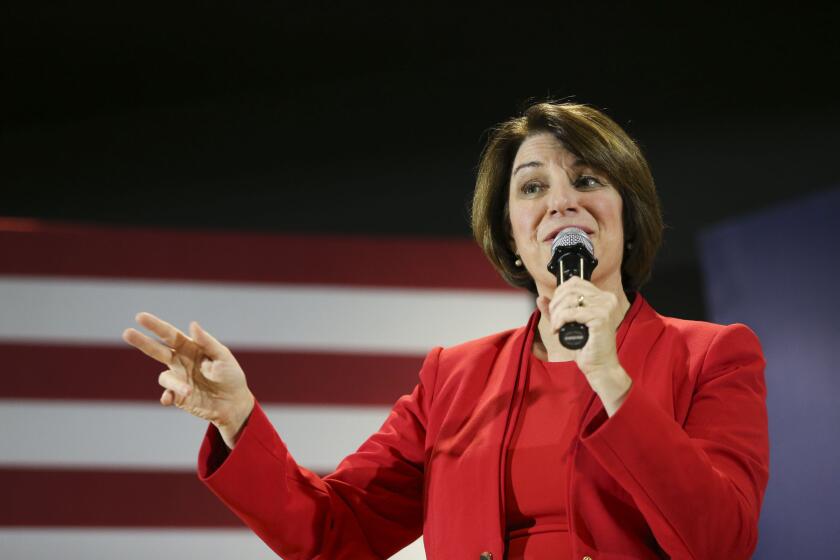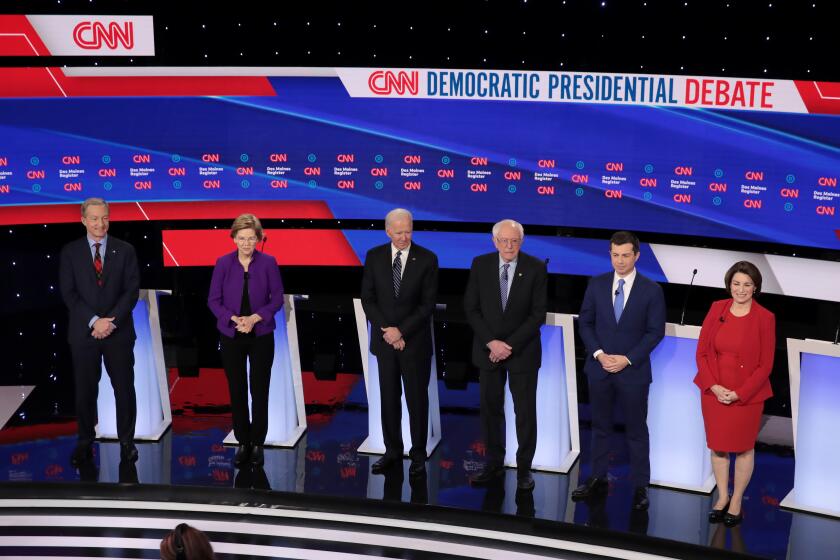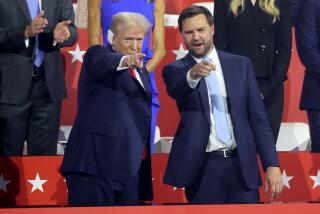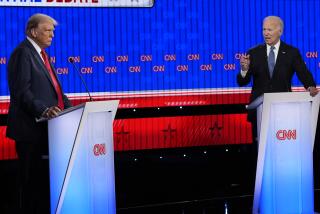Five takeaways from January’s Democratic debate in Iowa
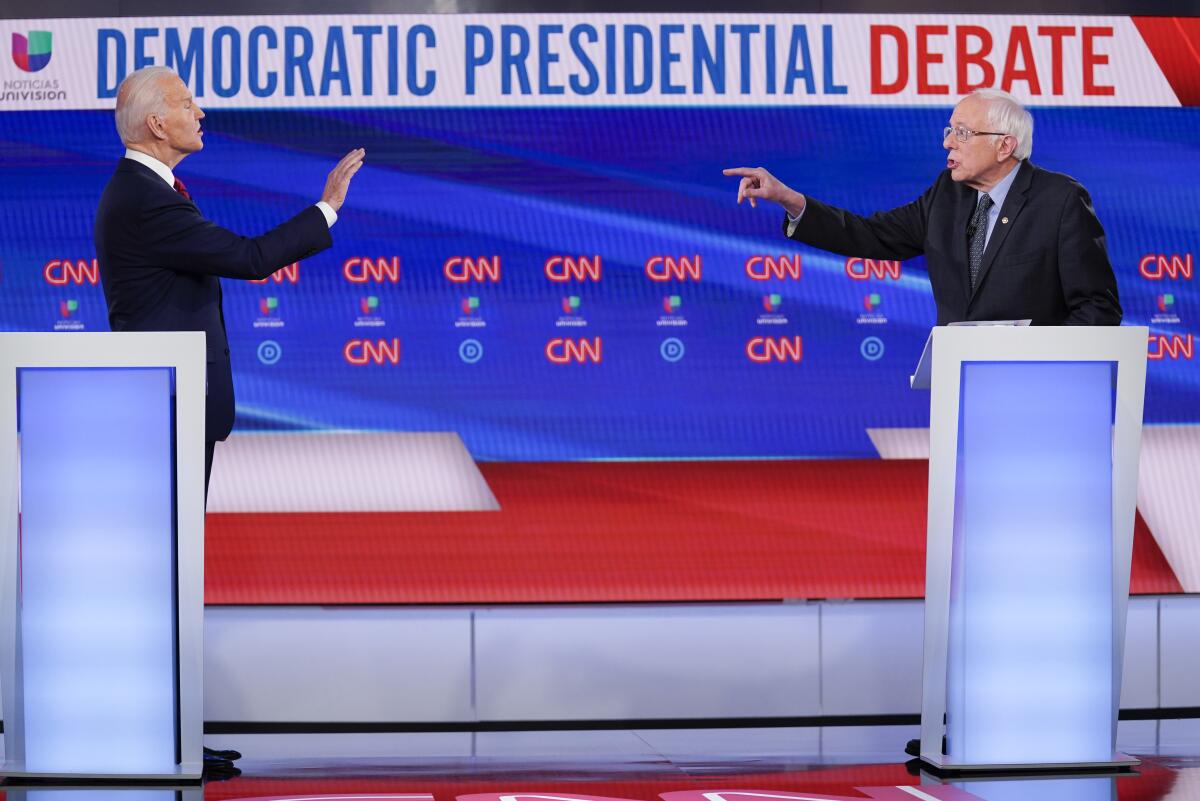
Six candidates, one stage, just a handful of tickets out of Iowa.
The Democratic debate in the Hawkeye State, which serves for the next three weeks as center of the political universe, marked the seventh round of candidate clashes and the first of the new year.
It had the fewest participants and could prove the most consequential — though it was arguably the most soporific — as it came a scant 20 days before the first ballots of the marathon campaign are cast.
Previous debates provided a few memorable moments, but otherwise did little to recast the contest, which for now appears to be a four-way fight among former Vice President Joe Biden, former South Bend., Ind., Mayor Pete Buttigieg and Sens. Bernie Sanders of Vermont and Elizabeth Warren of Massachusetts. Polls suggest half or more of potential caucusgoers are still making up their minds, which further heightened the stakes Tuesday night.
History, for what it’s worth, suggests the outcome on Feb. 3 in Iowa will have a considerable impact on the nominating fight going forward. Typically, only three or so candidates advance from the caucuses as viable contenders.
Here are five takeaways from the mostly low-key debate at Des Moines’ snow-crusted Drake University.
Candidates at the January Democratic debate cover foreign policy, healthcare and climate, and enter charged territory over gender in politics.
Still chums?
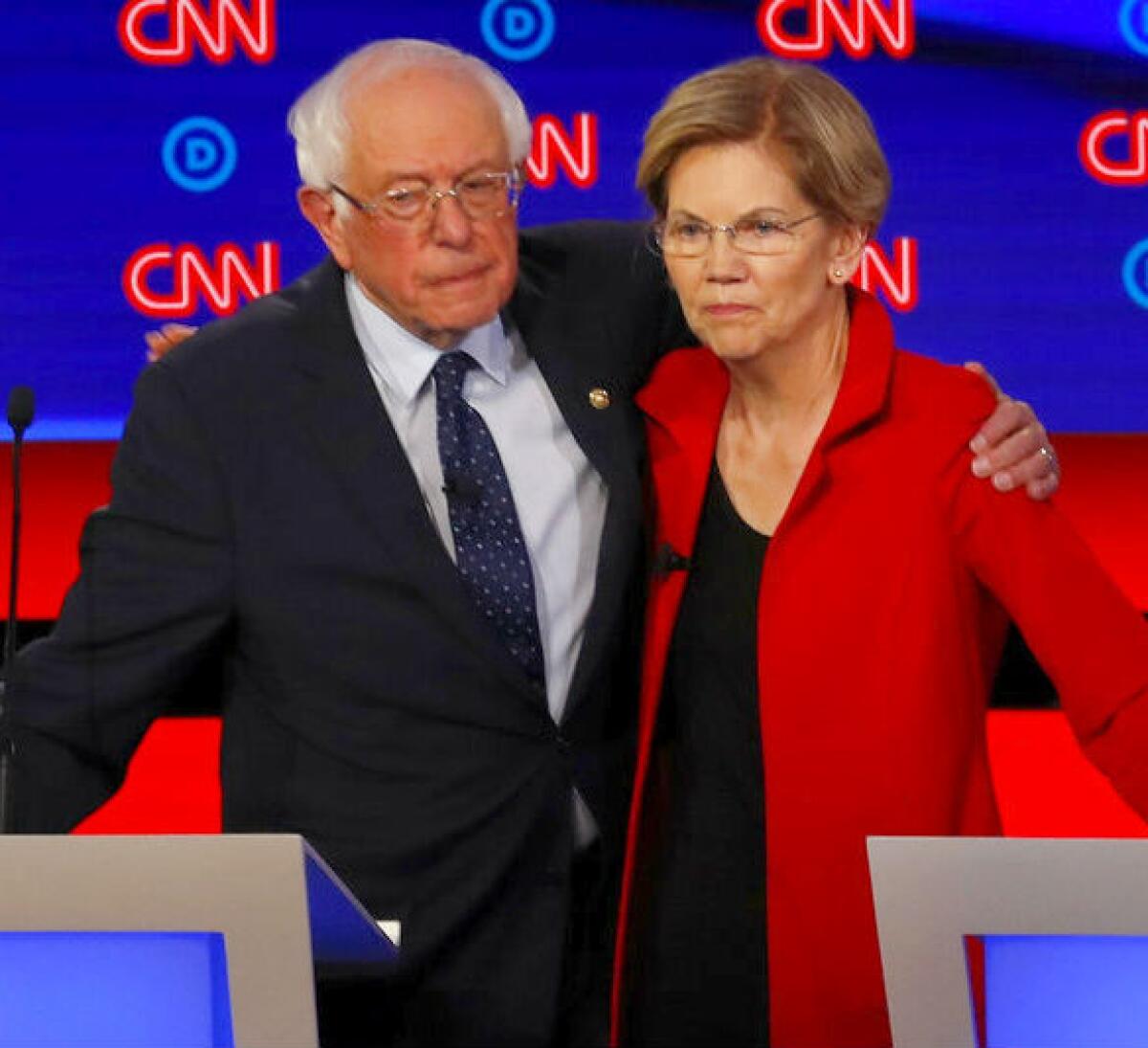
Sanders and Warren genuinely liked each other and, up until just a few days ago, adhered to a mutually agreed-upon nondisparagement pact, even as they competed for many of the same left-leaning voters. But a political campaign can sorely test a friendship, especially when pals are seeking the same office.
The entente seemingly ended over the weekend when Politico reported that volunteers for Sanders’ campaign were given a script bad-mouthing Warren. The two then spent Monday disagreeing over whether Sanders had told Warren in a private December 2018 meeting that, in his view, a woman can’t win the White House against President Trump. He insisted he had not.
Given a chance to continue their dispute before a national audience, the two largely declined.
“I am not here to fight with Bernie,” Warren said, neither backing off nor pressing her assertion that Sanders was fudging about the content of their closed-door chat.
Sanders insisted that of course a woman can be elected and again denied ever saying the contrary. (Warren responded with a classic double-take.)
“Does anybody in their right mind” doubt that a woman can win, Sanders demanded, noting his 2016 rival, Hillary Clinton, carried the popular vote against Donald Trump. (She lost in the electoral college.)
Once the debate ended, Warren declined to shake Sanders’ hand and the two engaged in a brief but animated discussion. The content of that conversation instantly became another subject of speculation.
Happy Joe
Looking on, as Warren and Sanders kind-of-but-didn’t-really tangle, Biden had good reason to flash that Cheshire Cat grin of his.
There is a long history of murder-suicide in politics, to wit: Candidate A attacks Candidate B and voters, disgusted with both, turn instead to Candidate C.
It happened in Iowa in 2004, the race that most closely resembles the current Democratic contest, with its focus on perceived electability and a national front-runner regarded by many in the party with more resignation than enthusiasm.
In that instance it was Vermont Gov. Howard Dean and Missouri Rep. Dick Gephardt, running neck-and-neck in Iowa, who set a torch to themselves, allowing the seemingly dead-and-buried Massachusetts Sen. John Kerry to surge to victory and, ultimately, the nomination.
Of course, no two campaigns are alike and past performance is no guarantee of future results.
Still, any tensions between Warren and Sanders — as well as among their allies and supporters — could well redound to the benefit of others, chief among them Biden.
Iraq, again
Talk about endless wars.
The U.S. conflict with Iraq began in March 2003 and ended, at least officially, in December 2011.
But the political skirmishing over the invasion started long before and continues to this day; indeed, the war — or, more specifically, support for the war — has been an issue in every Democratic presidential campaign that has taken place since, save for 2012, when President Obama was unopposed for the party nomination.
This time, it is Sanders and Buttigieg who have seized on Biden’s October 2002 vote authorizing the use of force — predicated on the erroneous belief that Baghdad possessed weapons of mass destruction — to question his judgment. The “worst foreign policy blunder” of modern times, Sanders called it.
“It was a mistake,” Biden said, as he has before, then noted that once he became vice president under Obama — who had opposed the invasion — “he turned to me and asked me to end that war.”
In the last several days the conflict gained new salience with the U.S. killing of a top Iranian general, followed by retaliatory missile strikes on U.S. forces in Iraq. What remains to be seen is whether the finger-pointing and blame-laying, so far removed from a 17-year-old congressional vote, still matters to any but the most ardently anti-war Democrat.
Klobmentum?
If flattering reviews and positive prognostications translated into actual support, Minnesota Sen. Amy Klobuchar might be running away with the nomination.
She has repeatedly drawn favorable post-debate reviews and assertions from the supposed cognoscenti that this could be her breakout performance. So far, however, the meteoric moment has failed to materialize.
Will this time be any different?
Sen. Amy Klobuchar lags top Democratic presidential rivals, but experts say the Midwesterner’s values and work meeting Iowa voters could bring an unexpected payoff.
On Tuesday night, Klobuchar was direct, detailed and concise. She was aggressive in pressing her points, without seeming obnoxious. She challenged Sanders and Warren over their advocacy of “Medicare for all” — you need “a plan and not a pipe dream” — aligning herself with the many who fret about losing their coverage and firmly staking herself to the political middle ground alongside Biden and Buttigieg.
She made several references to Iowa and Iowans, an always-welcome nod to local sensibilities. “These are real people hurt by Donald Trump’s trade war,” Klobuchar said in response to a question about trade.
No candidate has more riding on the caucuses; if Klobuchar fails to score in Iowa, where she enjoys special status as a next-door neighbor, it’s hard to see where she climbs into contention.
Steyer’s money’s worth
Tom Steyer has spent more than $100 million on ads promoting his candidacy and, while there is little evidence the former hedge fund executive is a serious contender for the nomination, his weighty wallet has procured him a spot in the last four debates.
(Former New York City Mayor Michael R. Bloomberg, whose Niagara of cash makes Steyer’s investment seem like a trickle, has not bothered to chase the requisite number of donors needed to qualify.)
Although Steyer disappeared for long stretches of the debate, he noted that he’d pushed for impeachment long before most other Democrats came around, and asserted himself by repeatedly invoking his signature issue, climate change. He pointed out he was the only candidate on the stage who had made the fight against global warming his No. 1 priority, and said he would declare a national emergency on his first day in office.
“I cannot allow this country to go down the path of climate destruction,” said Steyer, who has spent tens of millions of dollars, apart from his presidential campaign, to elevate climate change as a political issue.
Still, there was no reason to believe he transformed himself overnight into a top-tier candidate.
For those who despair at the outsized influence of campaign cash, the billionaire’s lagging performance in the race shows that money can’t buy you everything.
Less than three weeks before Iowa begins the presidential balloting, six Democrats took to the stage for the first debate of the new year and the last before voters begin having their say.The debate on the campus of Drake University featured four of the six candidates leading the presidential pack: former Vice President Joe Biden; former South Bend, Ind., Mayor Pete Buttigieg; and Sens. Bernie Sanders of Vermont and Elizabeth Warren of Massachusetts. The two others onstage, Minnesota Sen. Amy Klobuchar and billionaire political activist Tom Steyer, met the polling and fundraising requirements that shut out half a dozen other hopefuls.The candidates, trying to make their case in a wide-open race, clashed on healthcare, war and a woman’s chances to win the presidency. Catch up on who said what in Des Moines:
More to Read
Get the L.A. Times Politics newsletter
Deeply reported insights into legislation, politics and policy from Sacramento, Washington and beyond. In your inbox three times per week.
You may occasionally receive promotional content from the Los Angeles Times.

